Social Studies
The events of the Little Rock Central High School Crisis are taught in classrooms around the world as an important moment for the Civil Rights Movement, American History, and Arkansas History. These educational materials can teach students about the facts of those days, the people behind it, and the legacy it left.
The Little Rock Nine
The Little Rock Nine attended all-black high schools before registering to Central High School. Students will learn about the people behind that title, their experiences as the first African-Americans to attend Central High School, and the historic impact it had across the United States.
Daisy Bates
Daisy Bates was the mentor of the Little Rock Nine, publisher of the Arkansas State Press, and an ardent activist in the National Association for the Advancement of Colored Peoples (NAACP). Students will learn about her life, accomplishments, and involvement in the Central High School Desegregation Crisis.
The Civil Rights Movement
The Little Rock Central High School Crisis was a watershed event in the Civil Rights Movement of the 1950s and 1960s. Students will explore the critical movement, the injustices against African-Americans, and Arkansas's role in the movement.
The Lost Year
The Lost Year refers to the 1958-1959 school year in Little Rock, Pulaski County, when the city's high schools were closed in an effort to block desegregation. Students will examine the driving force that led to the Lost Year and how it affected the community.
Handouts:
Ready-to-Print Posters
The Special Collections Department at the University of Arkansas at Fayetteville offers free, ready-to-print posters about the Central High School Desegregation Crisis. Teachers and students are encouraged to print out these posters and share the legacy of the Crisis with others.
Contributors for educational materials: Bill Bigelow of Rethinking Schools, Carla Tindell of Ola High School and Butler Center of Arkansas Studies, Ashley Richardson of LISA Academy, Facing History and Ourselves, Teaching Tolerance, and the University of Arkansas at Fayetteville Special Collections.
